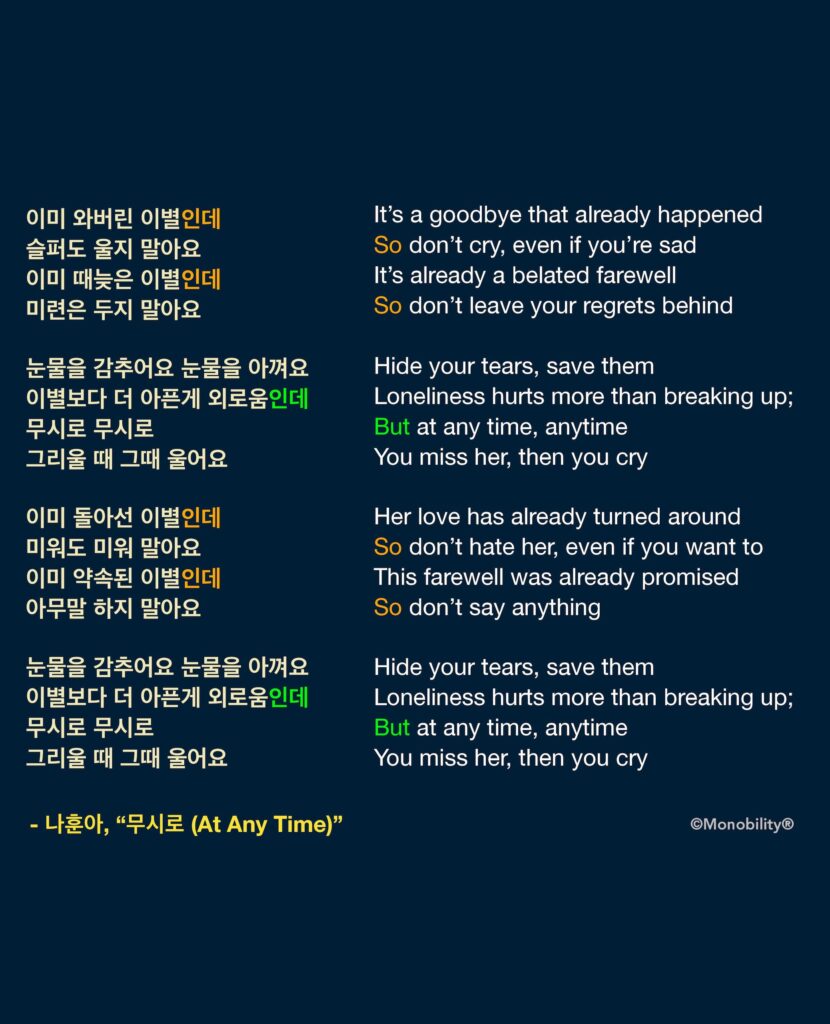Unlike English, Korean clauses sometimes use verb endings that do not actually END a sentence. Such Non-Sentence-Final Endings often sound like they have finished the sentence, but in fact, they give you a “heads-up” on another sentence that follows, just like conjunctions in English.
For example, in the following song titled “무시로 (At any time),” such a special ending “—인데” does not end a sentence, but it implies in advance that the next sentence is either a resultant clause (“, So”), or a contrastive (“, But”), depending on the context. So, when someone doesn’t clearly finish a sentence by using —인데, Koreans tend to wait for the person to finish all the way. One needs to listen carefully to the next following sentence, to construe what he or she really has in mind. This way, Korean innately demands “linguistic patience.”
Hey, don’t cut me off, or you’ll never understand what I’m really saying! ^^

Check out our Facebook for much more:



